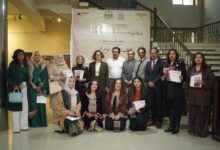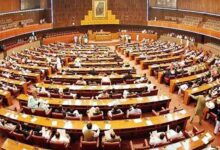Coffee Culture Booms in Pakistan, but Outdated Policies Hold Back Growth
From Trend to Staple: Why Pakistan’s Coffee Craze Needs Policy Reform to Truly Brew

In the heart of Pakistan’s bustling cities—Lahore, Karachi, and Islamabad—a quiet cultural revolution is brewing. Once dominated by the age-old tradition of chai (tea), the country is now witnessing a dramatic shift in beverage preference.
Coffee is rising fast as the drink of choice, especially among the youth. In trendy cafés, cozy homes, and corporate offices, coffee has become a symbol of productivity, modern lifestyle, and self-expression.
But while the aroma of freshly brewed coffee fills the air, the industry behind it faces a bitter reality.
A Booming Demand, An Unready System
Despite soaring demand and coffee’s growing cultural relevance, Pakistan lacks the infrastructure and supportive policies needed to cultivate and produce coffee locally. While the tea industry enjoys decades of government support and favorable policies, the coffee sector remains neglected—treated more like a luxury than a growing necessity.
At the root of this problem lies a deeply flawed regulatory framework. Pakistan imposes steep import duties on coffee products, making coffee significantly more expensive than tea. For example:
- Finished coffee products face duties of 42% to 53%
- Bulk raw coffee, such as instant coffee, carries a 28% duty
- In contrast, tea is taxed at just 13%
This pricing disparity limits coffee’s accessibility, particularly for the younger, price-sensitive population that’s driving the demand.
A Missed Economic Opportunity
Labeling coffee as a luxury import fails to reflect current consumption patterns. For many, coffee is not an occasional indulgence—it’s part of their daily routine. The real growth lies in mass-market consumption, not in high-end, imported gourmet blends.
As demand increases, the lack of a level playing field is stifling local innovation, discouraging investment, and slowing down job creation. Meanwhile, the tea industry continues to benefit from government backing, widening the competitive gap.
A Simple Fix with Big Impact
The solution? Remove or reduce import duties on bulk instant coffee.
By aligning coffee duties with those of tea, Pakistan could stimulate local coffee assembly and manufacturing, reduce prices for consumers, and create new opportunities for entrepreneurs. This policy change would also be in line with Pakistan’s own National Tariff Policy (2019–2024), which aims to rationalize tariffs and encourage industrial growth.
Such reforms would:
- Lower costs for everyday consumers
- Attract local and foreign investment
- Encourage local manufacturing and cultivation
- Create new jobs and business opportunities
A Global Market Ripe for Entry
Globally, coffee is one of the fastest-growing markets. According to Precedence Research, the global coffee industry is expected to grow from $256 billion in 2025 to $381 billion by 2034. Climate change is disrupting traditional coffee producers like Brazil and Vietnam, opening doors for new entrants.
Pakistan, with its favorable climate in regions like Pothohar, moderate rainfall, and hilly terrain, has the natural potential to cultivate coffee locally. Already, interest from local agribusinesses and international investors is rising—but without a supportive regulatory environment, that potential remains untapped.
The Time to Brew Change Is Now
With 65% of Pakistan’s population under the age of 35, the country has both the demand and the demographic edge to become a major coffee-consuming—and eventually producing—nation.
Formalizing the coffee industry would:
- Improve supply chains
- Reduce reliance on imports
- Shift the market from informal channels to regulated, tax-contributing businesses
- Support economic development and job creation
Pakistan has a golden opportunity to turn coffee from an imported luxury into a locally produced economic driver. By revising outdated import duties and supporting local cultivation, the government can unlock an industry that caters to modern tastes, boosts the economy, and provides more accessible coffee to every household.
In this evolving chapter of Pakistan’s cultural and economic story, coffee isn’t just a trend—it’s a chance for transformation. The time to act is now.






